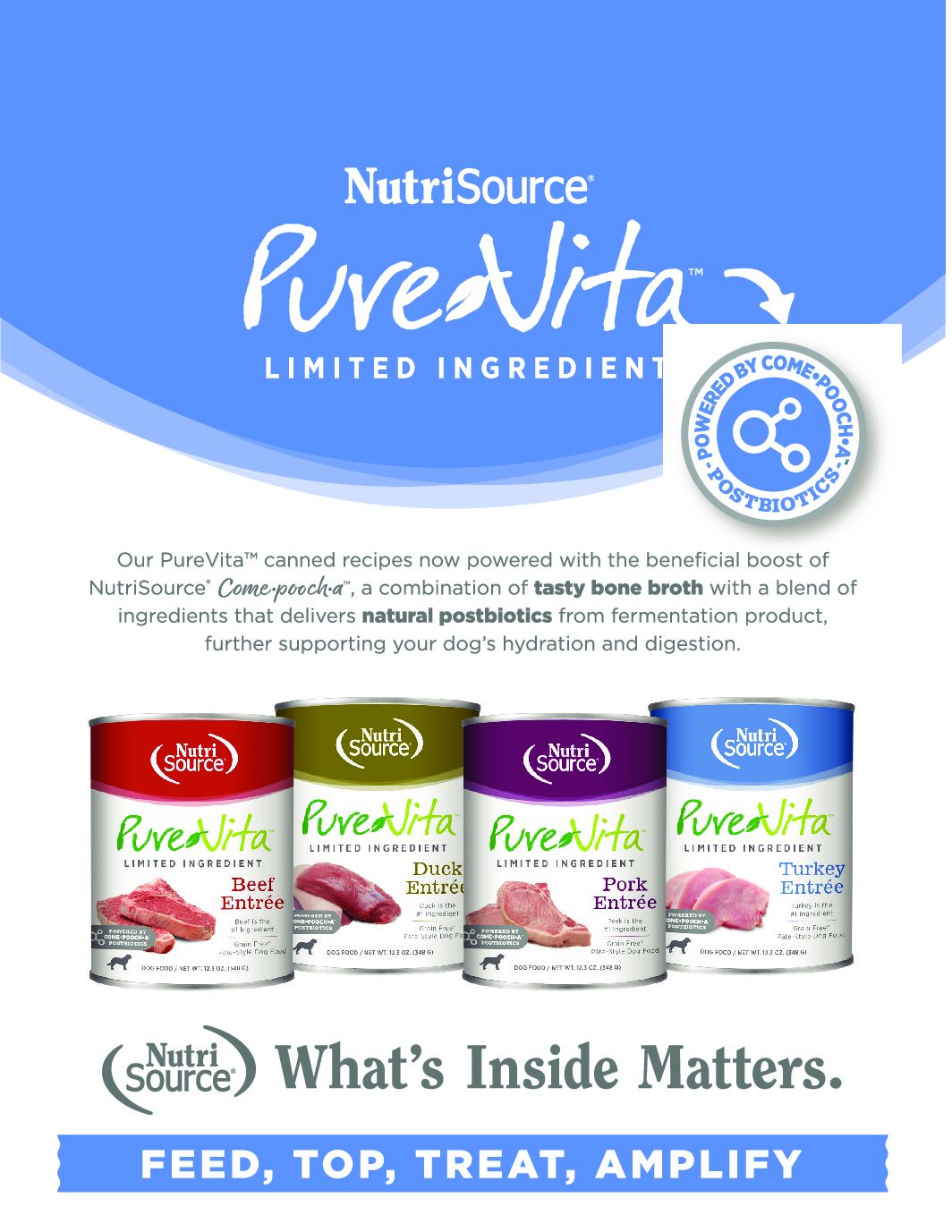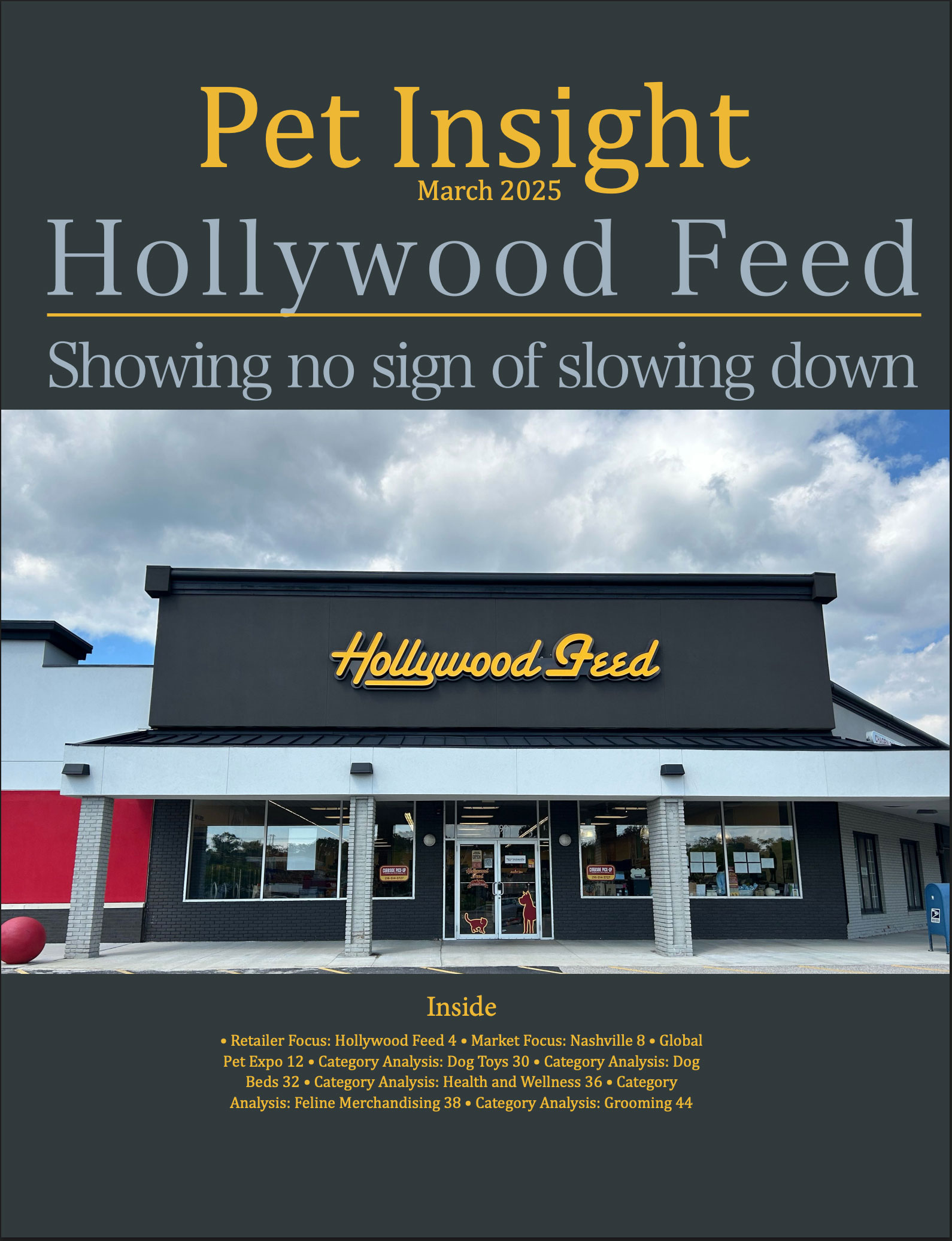Market Spotlight: Nashville
It might be hard to look past Nashville, TN’s glamorous ‘Music City’ moniker, but the city that boasts a unique musical history and culture is also a great place to raise pets. The Better Cities for Pets program, created by Mars Petcare to support cities in creating pet-friendly amenities and resources, certified Nashville in 2019, celebrating its ‘shelters’ and ‘homes’ traits in particular, according to its pet-friendly cities model. Social services to support pet ownership is strong in the community, as is the desire for pet owners themselves to support local businesses whenever possible.
By The Numbers
Since 2022, the number of retail pet stores in the Nashville metro area, encompassing the cities of Nashville, Murfreesboro, Franklin, Brentwood and Hendersonville, has grown by 15 percent.
In 2024, there were 69 total pet specialty store locations that represent 31 different companies. PetSmart represented the biggest share with 10 store locations, followed by Petco with nine, Pet Supplies Plus with six and local retailer Nashville Pet Products with five. Beyond that, Petsense by Tractor Supply has four locations; Hollywood Feed, Pet Supermarket and Spot’s Pet Supply/The Dog Spot each have three stores; and EarthWise Pet has two. Other multi-unit retailers amount to seven locations, and there are 17 single-store retailers.
Support Services
Per the Better Cities for Pets certification program, Nashville scored well under its ‘shelters’ and ‘homes’ traits, with ‘businesses’ and ‘parks’ rounding out its 4-point assessment focus. Specific to ‘shelters’ and ‘homes,’ the program celebrates traits like collaboration to end pet homelessness, friendly and approachable shelters that encourage adoption, pet-friendly housing options and robust support services for pet owners in tough times.
One of these unique service providers is Crossroads Campus, a non-profit in Nashville’s Germantown neighborhood that opened in 2013 and seeks to address multiple needs at once: giving young adults the opportunity to gain work experience in a retail store and grooming salon, and caring for dogs and cats to prepare them for adoption.
According to the organization’s website, “The animals we serve come via partnerships with larger shelters in Middle Tennessee and are often in need of extra time, training and attention to help prepare them for life with new families. Our young adults are actively engaged in the care and socialization of our adoptable animals. This is where we truly see the healing power of the human-animal bond.”
Lisa Stetar is the Founder and CEO of Crossroads Campus. She explained the concept behind her efforts in a local media profile: “The idea grew out of conversations with Charles Strobel, a passionate advocate for homeless people, and Emmylou Harris, a passionate advocate for homeless animals. The concept is centered on helping people gain hope, healing and job skills through caring for homeless animals. That initial idea has evolved into an organization that serves young people who are facing homelessness, including youths aging out of foster care, and provides shelter and adoptions for homeless dogs and cats from Metro Animal Care and Control.”
The youths gain not just work experience but a chance to work with pets. “All of the retail and grooming revenues go directly into supporting our nonprofit programs, so we call it making ‘a purchase with a purpose.’ In addition to our store, we also operate a pilot-scale affordable housing program, which is located above the store, and a humane education outreach program called Caring Connections, which serves children of all ages, including teens in custody,” said Stetar.
Heeding the need for better pet care support, the Nashville Humane Association (NHA) in 2019 established its Community Resource program to support pets and pet-owning households; it has since evolved into its Pawsitive Impact Program. Through it, the NHA provides resources for behavior support and training, rehoming guidance and other pet-related assistance like food bank information, crisis fostering and medical support.
NHA Executive Director Laura Baker, takes outreach a step further by reassuring those who might feel skittish or unprepared about the policies and procedures around a shelter visit. In a message to the community online, she shared, “In addition to loving my job, I have social anxiety. My goal with this post is to prepare and create a comfortable foundation for folks with what they may encounter when adopting an animal shelter, specifically Nashville Humane Association. Knowledge is power, and we realize that visiting a shelter may not be common for most community members. No worries, that is why we are here!”
Supporting Local
Dani Hurme, founder of The Modern Dog Company, owns and operates two store locations in East Nashville and West Nashville. “Nashville is a really cool city,” she said. “A majority of people really love their local businesses, so they love supporting local. They come in and tell me ‘Oh my gosh, you have this food. I’m going to cancel my Amazon or Chewy order because I really want to support local.’ That is one amazing thing about Nashville. People really care about the small businesses here, and they love the community they create.”
In addition to manufacturing her own assortment of hard goods including harnesses, leashes and feeding supplies like lick mats, Hurme makes a point of ensuring her stores are stocked with pet foods and products that raise the bar on nutrition and wellness. A strong desire to run her own business and a love for dogs drove her to indulge her entrepreneurial spirit.
“I was working in finance,” Hurme recalled. “I had my master’s in finance, but dogs were my passion and so was owning my own business. Long story short, I had started accessories on the side—like harnesses, leashes, collars—while I was working in finance, and then a spot opened up in my neighborhood that I thought would be perfect for a small boutique pet store. The West Coast is really progressive when it comes to dog food and raw feeding and all of that, but I feel like in the South, we’re still a little behind on where those innovative pet stores were headed. I consider us like a Whole Foods for dogs, so I wanted to create a place where it would create a community of dog parents and dog lovers where they could come together and get all the best brands in one place. My goal ended up being having the accessories, the toys, the trendy products, but also to have really high-quality kibble, gently cooked, raw food, toppers, treats, bones and more. I officially opened in March 2022 in my West National location, and then October 2024 my East National location. I was also able to get a bigger space, so I added these tiled out dog washes to take a task that’s really not enjoyable and try to make it as spa-like and as nice as I could for people and their dogs.”
Prior to establishing her first brick-and-mortar location, Hurme built up her e-commerce presence and continues to offer products to customers across the country.
“I started that in 2020 and I did pop ups,” she said. “It was OK and I was wholesaling to stores via fairs, but it felt like when I opened the store, it made me feel like a legitimate business. Like [battling] that imposter syndrome. Prior to the storefront, I was doing direct to consumer and wholesale, and then when I opened the store I was selling the same way but now in my shops. We ship all across the country. We used to do it globally too, but customs was a hassle so we just ship domestically for now. When you talk about online and the internet, you don’t really have a ceiling in your stores. You can only hold so much and get so many people, for example people in Alabama aren’t going to drive all the way to my store to pick up food, so we basically ship everything except big bags of kibble and frozen.”
In spite of the space limitations of a physical store, Hurme has embraced the community of pet lovers she’s built.
“I enjoy the people,” she said. “I did do the online thing for a bit, but it doesn’t fulfill me like getting to see people regularly and creating these relationships and doing these events. We’re hosting an event next month with a local girl who makes bandanas, and she’s going to come in and embroider names. We’re going to have snacks and treats and games and giveaways. and fostering a community of dog parents is super fulfilling. Getting to know everybody, I really am humbled by it, because my customers choose to shop with me.”
Hurme’s goals for her business include expanding store locations and to continue to push the conversation on pet nutrition.
“I played college sports, and I know how food affects the body, and so after researching and seeing how dogs are getting cancer at such high rates, I wanted to provide options for people who want to feed their dog better so dogs can have a better health span, not just a life span. And so they’re not sick for half their lives. We’re a little behind in terms of being educated on feeding and in terms of the way I see feeding and how I believe dogs should be fed—with fresh food. They’re living beings. I don’t want to eat processed food all day, every day or I’d have horrible skin, gut issues, all that stuff. The fresher I eat, the better I feel.”
The upshot for Hurme, though, is there is an openness to these new ideas and a growing embrace of the humanization of pets culture that has permeated other parts of the country.
“Nashville is very dog friendly,” she said. “So many people have dogs, and they have a cat, too. Most businesses, restaurants—we had a new business open up called Urban Dog Bar. People can go eat, dogs can play, people can watch and make sure the dogs are engaged. The pet community here is definitely expanding quickly. We’re just one of those smaller cities and we’re growing. We’re headed in the right direction, for sure.”
Though economic factors might still pose challenges for pet owners and even pet businesses, it’s clear from many perspectives that there’s arguably no better place to be a dog than in Nashville.



